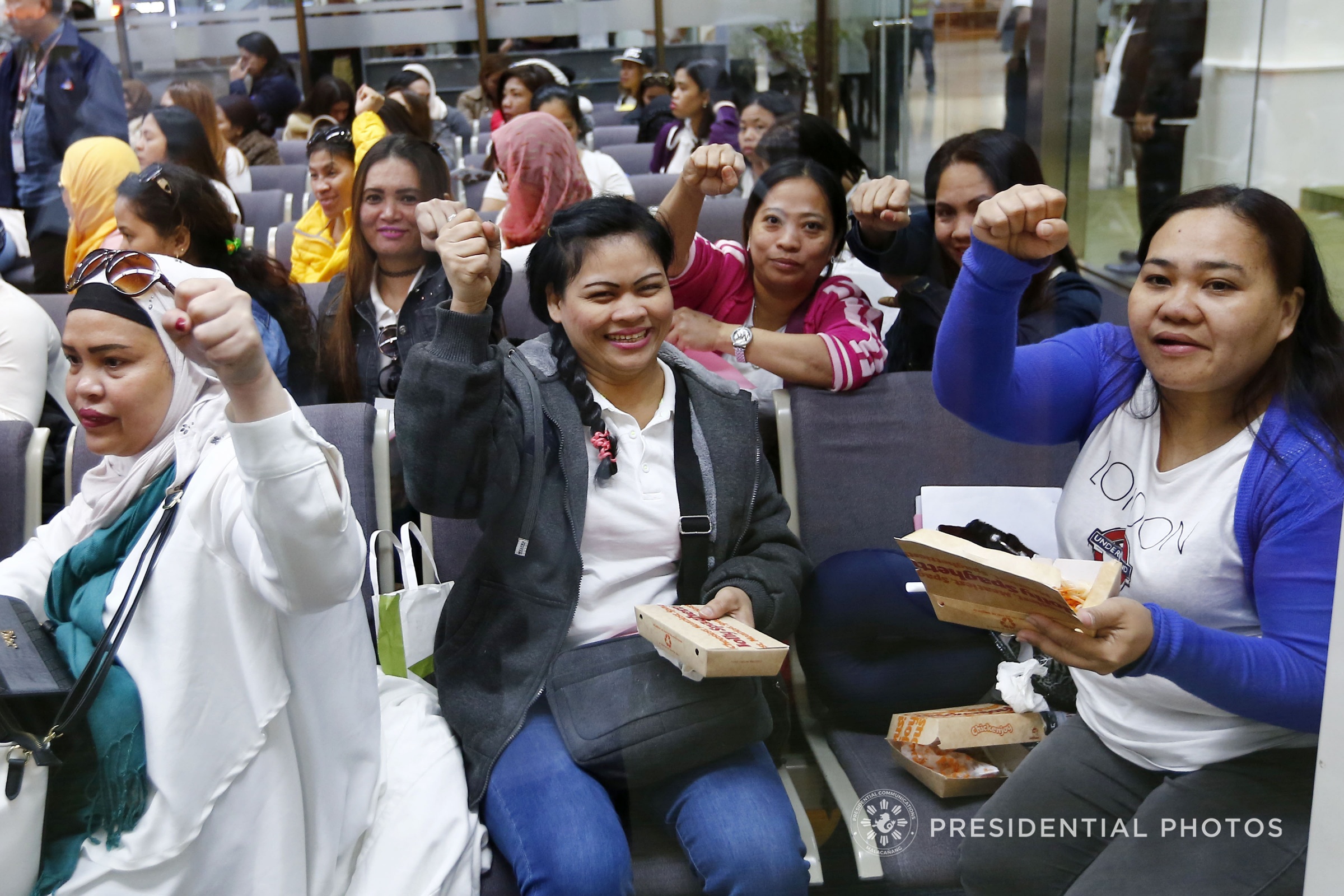News
MOU, UAE’s new domestic worker law seen to curb OFW abuses

FILE: With the recently signed domestic law in the United Arab Emirates (UAE), as well as the memorandum of understanding (MOU) between Abu Dhabi and Manila all enforced, the Philippine government is optimistic that incident of abuses on overseas Filipino workers will go down. (Alfred Frias/Presidential Photo)
MANILA– With the recently signed domestic law in the United Arab Emirates (UAE), as well as the memorandum of understanding (MOU) between Abu Dhabi and Manila all enforced, the Philippine government is optimistic that incident of abuses on overseas Filipino workers will go down.
The UAE Law for Domestic Workers was signed in June 2017 while the MOU on Labor Cooperation between the Philippines and the UAE was signed in September of that year.
The Department of Foreign Affairs (DFA) said UAE has implemented measures to ensure protection of household service workers in the Gulf state such as the transfer of domestic labor jurisdiction from the Ministry of Interior to the Ministry of Human Resources and Emiratisation to secure household service workers’ (HSW) rights on dispute resolution.
Among others, Tadbeer Centers, which recruit expatriate workers seeking to work in the UAE have also been opened– one way to assure that HSWs’ rights are protected as mandated under the new UAE Law for Domestic Workers.
With the MOU and measures currently being implemented by the UAE for all domestic workers, the Embassy said it hopes that incidents of abuse, maltreatment, detention, and other complaints by Filipino HSWs will be minimized.
The Embassy said it also continues to accommodate and assist Filipino workers in distress in Abu Dhabi.
On Friday morning, it repatriated 81 distressed OFWs, who were accompanied by Philippine Ambassador to the UAE Constancio Vingno Jr. and Assistance-to-Nationals Head Third Secretary and Vice Consul Von Ryan Pangwi on their flight back to Manila via the Philippine Airlines.
Since January 2018, the Embassy has repatriated 459 Filipinos, mostly victims of human trafficking and illegal recruitment.
In 2017, the Embassy repatriated 1,491 distressed Filipinos.
The latest batch of repatriated nationals are mostly tourist visa holders when they entered UAE.
The DFA said these are victims of illegal recruiters and have left their sponsors or agencies due to maltreatment, poor working conditions, detention, and non-payment of salaries.





















